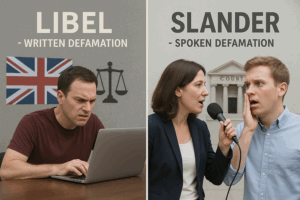Types of Alternative Dispute Resolution in the UK: Which one do you need?

Your business partner refuses to budge. Your ex-spouse threatens a custody battle. Your employer dismisses your concerns. You feel stuck, but you’re not. Alternative dispute resolution methods resolve disputes faster than courts, without public hearings or hostile confrontations. Whether your conflict involves contracts, family matters, or workplace issues, there’s a specific method designed for your situation. The real question is which one will work best for you, and getting specialist dispute resolution legal advice ensures you choose the right path from the start.

Key Takeaway: What is alternative dispute resolution?
Discover which of the seven alternative dispute resolution methods will resolve your specific conflict.
Mediation: The collaborative approach
Alternative dispute resolution mediation puts you and the other party in the same room with one goal: find a solution you both can live with. No judge decides your fate. No jury weighs evidence. You control the outcome.
When mediation works best?
Mediation thrives where relationships matter more than being declared the winner in court:
- Family disputes top the list. Divorce settlements, child custody arrangements, inheritance disagreements. Your bitter divorce proceedings could transform through mediation into a workable co-parenting plan that prioritises your children’s stability over scoring points against your ex-spouse.
- Employment conflicts resolve effectively through mediation. When you face discrimination allegations from a colleague, workplace mediation helps both of you address underlying communication breakdowns while preserving your career prospects and working relationship.
- Commercial disputes between business partners, suppliers, or contractors benefit from mediation’s relationship-preserving nature. Your licensing dispute with another company could use mediation to restructure agreements, turning adversaries back into profitable partners.
- Neighbour disputes over boundaries, noise, or property issues often resolve through community mediation schemes available across most UK councils. Your fence line disagreement doesn’t have to destroy years of neighbourly relations.
Arbitration: Private court proceedings
Alternative dispute resolution arbitration gives you a private judge who makes final, binding decisions about your dispute. No public courtrooms, no jury, no appeals; just expert decision-makers resolving your conflict definitively behind closed doors. You present evidence and arguments to one or more arbitrators, typically lawyers, retired judges, or industry experts. They conduct formal hearings, examine documents, hear witnesses, then issue binding awards that courts will enforce.
When arbitration works best?
Arbitration excels where you need definitive resolution with specialised expertise:
- Commercial contracts frequently include arbitration clauses requiring disputes go to arbitration rather than court. Your software development contract dispute gets resolved by technology experts who actually understand coding complexities, not generalist judges.
- International business disputes rely heavily on arbitration because awards are enforceable across borders under international treaties. Your export agreement disagreement with a German manufacturer gets resolved through London arbitration, with the award enforceable in both countries.
- Construction disputes benefit from arbitrators with engineering or architectural backgrounds. Your building defect claim against the contractor gets decided by someone who understands structural engineering, not just legal precedents.
- Employment disputes at senior levels often use arbitration to maintain confidentiality. Your wrongful dismissal claim as a company director gets resolved privately, protecting both your reputation and the company’s commercial interests.
Conciliation: Guided settlement discussions
Alternative dispute resolution methods include conciliation. A trained conciliator listens to both sides, evaluates the strengths and weaknesses of each position, then proposes practical settlement terms. Unlike mediators who stay neutral, conciliators offer opinions about fair outcomes and actively steer negotiations toward resolution.
When conciliation works best?
Conciliation proves most effective where parties need guidance to break deadlocks:
- Employment disputes dominate conciliation through ACAS (Advisory, Conciliation and Arbitration Service). Your unfair dismissal claim gets assigned an ACAS conciliator who suggests settlement amounts based on similar cases, helping you and your former employer reach agreement before expensive tribunal proceedings.
- Workplace grievances benefit from conciliators who understand employment law complexities. Your discrimination complaint against your supervisor gets resolved through guided discussions where the conciliator suggests policy changes and compensation reflecting legal precedents.
- Small business disputes use conciliation when parties want expert guidance but retain settlement control. Your payment dispute with a supplier gets resolved when the conciliator suggests phased payment schedules based on cash flow realities both sides can accept.
- Consumer complaints through ombudsman services often use conciliation before formal investigations. Your insurance claim dispute gets guided toward settlement by conciliators who know industry standards and typical compensation levels.
Early neutral evaluation: Expert insight
Early Neutral Evaluation delivers brutal honesty about your case before you invest heavily in litigation. You and the opposing party present abbreviated versions of your cases to a neutral expert, typically a retired judge, senior barrister, or industry specialist. They review key documents, hear brief arguments, then provide frank assessments of each side’s prospects, likely outcomes, and realistic settlement ranges.
When early neutral evaluation works best?
Early Neutral Evaluation excels where parties hold unrealistic expectations about their legal positions:
- Construction disputes benefit enormously from evaluation by quantity surveyors or engineers. Your building defect claim worth £500,000 in your mind gets reality-tested by an expert who explains why structural evidence only supports £150,000, saving you from pursuing an expensive losing battle.
- Professional negligence claims use evaluation by practitioners in relevant fields. Your medical negligence case against a surgeon gets assessed by another consultant who explains whether treatment actually fell below acceptable standards, helping you avoid futile litigation.
- Commercial contract disputes employ evaluation by commercial law experts. Your breach of contract claim gets examined by a silk who explains why liquidated damages clauses limit your recovery, prompting realistic settlement discussions.
- Intellectual property disputes utilise evaluation by IP specialists. Your patent infringement claim gets assessed by experts who understand technical complexities and prior art that could invalidate your position.
Expert determination: Technical dispute resolution
Expert determination solves disputes by giving specialist experts final decision-making power over technical questions that ordinary judges couldn’t properly understand. You agree to appoint a recognised expert in the relevant field who investigates the technical dispute and makes a binding decision. Unlike arbitrators who focus on legal arguments, expert determiners resolve disputes based on their specialist knowledge and industry experience.
When expert determination works best?
Expert determination dominates where technical knowledge matters more than legal precedents.
- Property valuations use expert determination constantly. Your rent review dispute gets decided by a chartered surveyor who determines market rent based on comparable properties and local market conditions; no legal arguments needed, just professional valuation expertise.
- Construction defects require expert determination by engineers or architects. Your structural crack dispute gets resolved by a building expert who determines whether foundations meet building standards, not by lawyers debating contract clauses.
- Professional negligence in technical fields uses expert determination. Your architect’s design dispute gets decided by another qualified architect who assesses whether the design meets professional standards, focusing on technical competence rather than legal liability.
- Insurance claims involving technical loss assessments benefit from expert determination. Your machinery breakdown claim gets resolved by an engineer who determines repair costs and causation based on technical investigation.
Adjudication: Fast-track construction disputes
You refer your construction dispute to an adjudicator who has exactly 28 days to investigate and decide. They review documents, may visit sites, hear brief presentations, then issue binding decisions that must be implemented immediately.
When adjudication works best?
Adjudication was designed specifically for construction industry cash flow disputes where speed trumps detailed analysis.
- Payment disputes dominate adjudication referrals. Your subcontractor withholds £75,000 claiming defective work, threatening your project completion. Adjudication forces rapid resolution, ensuring either payment flows or legitimate defects get addressed without stopping the entire project.
- Variation claims use adjudication when contractors and clients disagree about additional work scope. Your electrical contractor claims £25,000 for extra wiring not in original specifications. Adjudication determines whether the work constitutes a legitimate variation or was included in the original contract.
- Defect disputes get adjudicated when disagreements about remedial work threaten project handover. Your building contractor disputes responsibility for water penetration issues. Adjudication provides interim decisions allowing projects to complete while preserving rights for detailed resolution later.
- Extension of time claims benefit from adjudication’s speed. Your contractor claims weather delays justify completion date extensions. Adjudication prevents liquidated damages disputes from escalating while projects progress.
Ombudsman services: consumer protection
Ombudsman services provide free dispute resolution when businesses fail to resolve your complaints satisfactorily. Investigators examine evidence from both sides, may request additional information, then issue binding decisions that businesses must implement. No court fees, no legal representation required.
When Ombudsman services work best?
Ombudsman services excel for consumer disputes against businesses within their jurisdiction.
- Financial services complaints through the Financial Ombudsman Service cover banking errors, insurance claim rejections, and investment advice failures. Your bank refuses to refund fraudulent transactions despite clear evidence of unauthorized access. The ombudsman investigates and orders full reimbursement plus compensation for inconvenience.
- Energy supplier disputes get resolved through Ofgem’s ombudsman when billing errors or switching problems occur. Your energy company continues charging after you switched suppliers six months ago. The ombudsman forces refunds and prevents credit rating damage from disputed bills.
- Telecommunications complaints through Ofcom’s ombudsman address service failures and billing disputes. Your broadband provider charges for premium services you never ordered. The ombudsman orders refunds and service improvements.
- Property disputes involving estate agents get handled by property ombudsman schemes. Your estate agent fails to disclose known structural problems during house sales. The ombudsman awards compensation for survey costs and legal fees incurred due to the non-disclosure.
Do I need a solicitor when attempting ADR?
Engaging a specialist dispute resolution solicitor significantly improves your chances of success in any ADR process:
- Strategic advantage Solicitors know which ADR method suits your specific dispute, preventing costly mistakes in process selection that could waste months and thousands of pounds.
- Better outcomes: Experienced negotiators consistently achieve superior settlements compared to unrepresented parties. Your solicitor’s expertise often recovers their fees through improved results.
- Document expertise: Properly drafted settlement agreements prevent future disputes. Poorly worded agreements create new problems that cost more to resolve than the original dispute.
- Risk protection: Solicitors identify legal pitfalls you cannot see, protecting you from tactical errors that could destroy otherwise strong positions.
- Process navigation: ADR procedures have specific rules, deadlines, and requirements. Mistakes can forfeit your rights or weaken your case irreparably.
- Evidence presentation: Knowing what evidence matters and how to present it effectively can determine success or failure in arbitration, adjudication, and expert determination.
- Negotiation psychology: Professional negotiators understand when to push, when to compromise, and how to structure deals that actually get implemented.
FAQs
- How long does each ADR method typically take from start to finish? Mediation: 2-6 weeks. Arbitration: 6-18 months. Conciliation: 4-8 weeks. Early Neutral Evaluation: 4-8 weeks. Expert determination: 6-12 weeks. Adjudication: 28 days maximum. Ombudsman: 3-6 months.
- Can I switch from one ADR method to another if the first one fails? Yes, failed mediation, conciliation, or early neutral evaluation preserve your rights to try other methods or go to court. However, binding decisions from arbitration, expert determination, adjudication, or ombudsman services are final and cannot be overturned through different ADR processes.
Alternative dispute resolution types offer faster, cheaper, and more flexible solutions than traditional litigation. Choose the right method for your specific situation, engage specialist legal representation, and resolve your dispute efficiently while preserving important relationships and controlling costs.
Get expert ADR guidance!
Qredible’s network of specialist dispute resolution solicitors will assess your situation, recommend the optimal ADR approach, and guide you to the best possible outcome.
KEY TAKEAWAYS
- Seven distinct alternative dispute resolution types exist in the UK, from collaborative mediation and guided conciliation to binding arbitration and rapid adjudication, each designed for specific dispute circumstances and relationship dynamics.
- Choosing the right method depends on your dispute complexity, desired outcomes, and time constraints, with mediation suited for relationship preservation, arbitration for definitive resolution, and ombudsman services for consumer protection.
- Specialist dispute resolution solicitors significantly improve outcomes by selecting optimal processes, navigating procedures correctly, and negotiating superior settlements that often recover their fees through better results.
Articles Sources
- rics.org - https://www.rics.org/dispute-resolution-service/alternative-dispute-resolution
- brittontime.com - https://brittontime.com/insights/what-are-the-four-types-of-alternative-dispute-resolution-adr/
- robsols.co.uk - https://robsols.co.uk/types-of-alternative-dispute-resolution/
- assets.publishing.service.gov.uk - https://assets.publishing.service.gov.uk/media/6409f897e90e076cd3a9efc3/ADR_Guidance_accessible_WEB_20_.pdf
Do you need a solicitor?
Find a solicitor on Qredible in just a few easy steps
Stowmarket Solicitor
London Solicitor
London Solicitor
East Sussex Solicitor
Birmingham Solicitor
London Solicitor
















